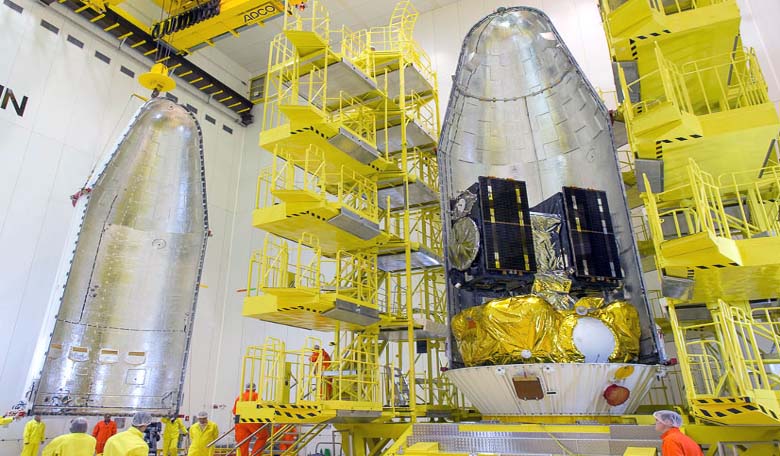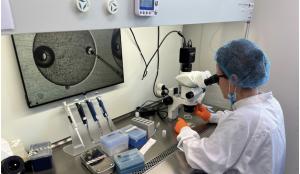Scheduled for liftoff tomorrow, May 24, at precisely 5:48:43 a.m. local time in French Guiana, Soyuz flight VS15 will launch and deploy two European Galileo navigation satellites in a circular orbit around Earth following a 3 hour plus ballistic phase.
Galileo is Europe’s initiative for a state-of-the-art global satellite navigation system, providing a highly accurate global positioning service under civilian control. The fully deployed system will consist of 30 satellites and its complete operational and ground structure is managed and funded by the European Commission, with the European Space Agency (ESA) delegated as the design and procurement agent on the Commission’s behalf.
Preparations for the launch have been completed at Arianespace’s new Spaceport processing facility, which has fuelled the Russian built Fregat upper stage. Fregat is designed for injecting large payloads into a geosynchronous orbit and has enabled Soyuz to perform a full range of missions.
After its fuelling in the FCube (Fregat Fueling Facility), the Fregat was transferred to the Spaceport’s S3B clean room, whereby the upper stage was integrated with the two navigation satellites to create the “upper composite.” This is protected by a payload fairing during the initial phase of flight through the atmosphere.
The two FOC (Full Operational Capability) navigation satellites will become the 13th and 14th operational Galileo craft launched since 2011. Built by prime contractor OHB System in Bremen, Germany, their onboard payloads are supplied by UK-based Surrey Satellite Technology Limited (SSTL) – which is 99 percent owned by Airbus Defence and Space.
A further 16 satellites are planned for the Galileo program which is due for completion in 2020 and once complete, the full system will consist of control centres located in Europe, and a network of uplink stations and sensor stations installed around the globe. Satellite industries are big business and independent studies have shown that Galileo will deliver around €90 billion to the EU economy over the first 20 years of operations.
The Galileo system is also planned to be fully compatible with the U.S. Air Force’s next-generation GPS satellites, and when combined, the two signals will give users better timing and positioning accuracy and an independent backup navigation service.











